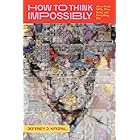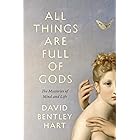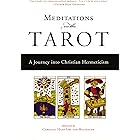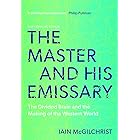Learn more
These promotions will be applied to this item:
Some promotions may be combined; others are not eligible to be combined with other offers. For details, please see the Terms & Conditions associated with these promotions.
Your Memberships & Subscriptions

Download the free Kindle app and start reading Kindle books instantly on your smartphone, tablet, or computer - no Kindle device required.
Read instantly on your browser with Kindle for Web.
Using your mobile phone camera - scan the code below and download the Kindle app.

Follow the author
OK
Acute Religious Experiences: Madness, Psychosis and Religious Studies (Bloomsbury Advances in Religious Studies) Kindle Edition
Acute Religious Experiences divides into three sections, beginning with re-readings of William James's pathological programme, Rudolf Otto's numinous, T. K. Oesterreich's possession, Mircea Eliade's shamanism, Walter Stace's mysticism, Walter Pahnke's psychedelic experience, and Abraham Maslow's peak experiences. These ideas are shown to constitute the beginnings of a fractured discourse on the irrational. In part two, contemporary psychiatry's Diagnostic and Statistical Manual (DSM) and Foucault's History of Madness are re-read to reposition madness as not necessarily pathological. This opens the way for the identification of acute religious experiences as a new holistic and post-colonial approach through which religious data can be organized and addressed on a comparative basis. In part three, The Gospel of Mark is re-read as a case study to demonstrate the novel insights which flow from the identification of acute religious experiences.
Richard Saville-Smith draws on his own experiences of madness and his PhD from the School of Divinity at The University of Edinburgh to elucidate his research.
- LanguageEnglish
- PublisherBloomsbury Academic
- Publication dateFebruary 9, 2023
- File size1.0 MB
Customers who bought this item also bought
Editorial Reviews
Review
“In short, this is a brilliant and long overdue attempt to overcome the effects of the discipline-bound approaches to studying extreme experiences in psychiatry and religious studies using Mad Studies and the experience of “madness” as a wedge to open an interdisciplinary space of overlap and indeterminacy.” ―Journal of the American Academy of Religion (JAAR)
“This is a major, much needed intervention in the study of (religious) experiences. It offers a brilliant critique of the works of major 20th-century theorists, most of whom went to great lengths to distance religious and psychopathological experiences, and a fascinating new approach to visions, voices and possession from the perspective of mad studies.” ―Ann Taves, Distinguished Professor (Emerita) of Religious Studies, UC Santa Barbara, USA
“Richard Saville-Smith introduces a novel reframing of acute religious experiences away from dominant, normative psychiatric classificatory schemes. Yet the proposed and developed replacement is not merely the frame of traditional ineffable mysticism or of apophatic striving, but rather that of “mad studies” wherein a mutually beneficial and intelligible reciprocity between “the mad” experiencer and the “rational” listener may be sought. Madness may yield knowledge, as the ancient Greeks intuited. The author applies this old intuition to the modern world through the tracing of a dialogue amongst relevant figures such as William James, Rudolf Otto, Walter Stace, and Foucault – alongside critical analyses of psychiatric manuals of “diagnosis”. Here is a fascinating, refreshing work that will no doubt ignite further debate.” ―Peter Sjöstedt-Hughes, Lecturer in Philosophy, University of Exeter, UK
“Acute Religious Experiences is a ground-breaking transdisciplinary work that brings the domains of madness and mysticism together in a transformative synthesis. Richard Saville-Smith offers a powerful challenge not only to the tendency in psychiatry to view psychosis through an exclusively pathological lens, but also to the tendency in religious studies to erase the madness of the mystic and the prophet. The discourse of the phenomenology of the extraordinary/anomalous/extreme, heretofore fractured, is unified and made visible in this brilliant text.” ―Awais Aftab, Clinical Assistant Professor of Psychiatry, Case Western Reserve University, USA
“This major contribution offers an interdisciplinary reading of religious and mystical experiences, opening up a pluralistic space that undercuts any rapid move from anomalous experiences to pathology. It will be of great value to clinicians, researchers and those with lived experience.” ―Matthew Broome, Professor of Psychiatry and Youth Mental Health, and Director of the Institute for Mental Health, University of Birmingham, UK
“Those who want to delve into mad studies reading of psychiatric and religious texts will find themselves well on their way with the book by Saville-Smith. And anyone who also wants to get acquainted with deconstruction as a method of reading and commenting on texts can doubly well turn to this author, who, inspired by Derrida, applies the method freely and skilfully. That is the double strength of this book when it comes to an old, undecided, and truly relevant theme across a range of academic disciplines.” ―Peter J. Verhagen, Mental Health, Religion & Culture
“The work is thoughtful and careful. Saville-Smith defines his terms carefully and is extremely precise.” ―Reading Religion
About the Author
Richard Saville-Smith is an independent scholar based in the UK.
Steven J. Sutcliffe is Senior Lecturer in the Study of Religion in the School of Divinity at the University of Edinburgh, UK. He is the co-editor (with Carole Cusack) of The Problem of Invented Religions (2016) and (with Ingvild Gilhus) of New Age Spirituality: Rethinking Religion (2014) and is the author of Children of the New Age: A History of Spiritual Practices (2003).
Product details
- ASIN : B0BS1128QF
- Publisher : Bloomsbury Academic; 1st edition (February 9, 2023)
- Publication date : February 9, 2023
- Language : English
- File size : 1.0 MB
- Text-to-Speech : Enabled
- Screen Reader : Supported
- Enhanced typesetting : Enabled
- X-Ray : Not Enabled
- Word Wise : Enabled
- Print length : 268 pages
- Best Sellers Rank: #2,770,169 in Kindle Store (See Top 100 in Kindle Store)
- #1,603 in Psychiatry (Kindle Store)
- #6,818 in Psychiatry (Books)
- #322,893 in Religion & Spirituality (Kindle Store)
- Customer Reviews:
About the author

Living on the Island of Skye is all about water and light - the waterfalls, rainbows, sunsets and the rain marching horizontally down the valley towards the sea. I wrote Acute Religious Experiences over the winter months of darkness digging deeper into the fractured discourse of humanities scholars who avoided talking about madness and psychiatrists who reduced madness to mental disorders. Having been detained in the locked wards I write out of the certainty that the cultural contribution of madness has been underrated, particularly in the history of religions. If you can’t afford the cover price, ask your library to buy a copy from Amazon.
Customer reviews
- 5 star4 star3 star2 star1 star5 star52%48%0%0%0%52%
- 5 star4 star3 star2 star1 star4 star52%48%0%0%0%48%
- 5 star4 star3 star2 star1 star3 star52%48%0%0%0%0%
- 5 star4 star3 star2 star1 star2 star52%48%0%0%0%0%
- 5 star4 star3 star2 star1 star1 star52%48%0%0%0%0%
Customer Reviews, including Product Star Ratings help customers to learn more about the product and decide whether it is the right product for them.
To calculate the overall star rating and percentage breakdown by star, we don’t use a simple average. Instead, our system considers things like how recent a review is and if the reviewer bought the item on Amazon. It also analyzed reviews to verify trustworthiness.
Learn more how customers reviews work on AmazonTop reviews from the United States
There was a problem filtering reviews. Please reload the page.
- Reviewed in the United States on April 18, 2023What I found valuable in this book was the thorough analysis of the possibility of rare events being interpreted in non-pathological ways. It indirectly validates the old realization of Rorschach evaluations that “unusual responses “ involve two groups, one unusually creative people and “mad” people. The difference us that the creatives can make themselves understood whereas the”mad” can’t or don’t care to. An outstanding exercise in controlling premature judgment












